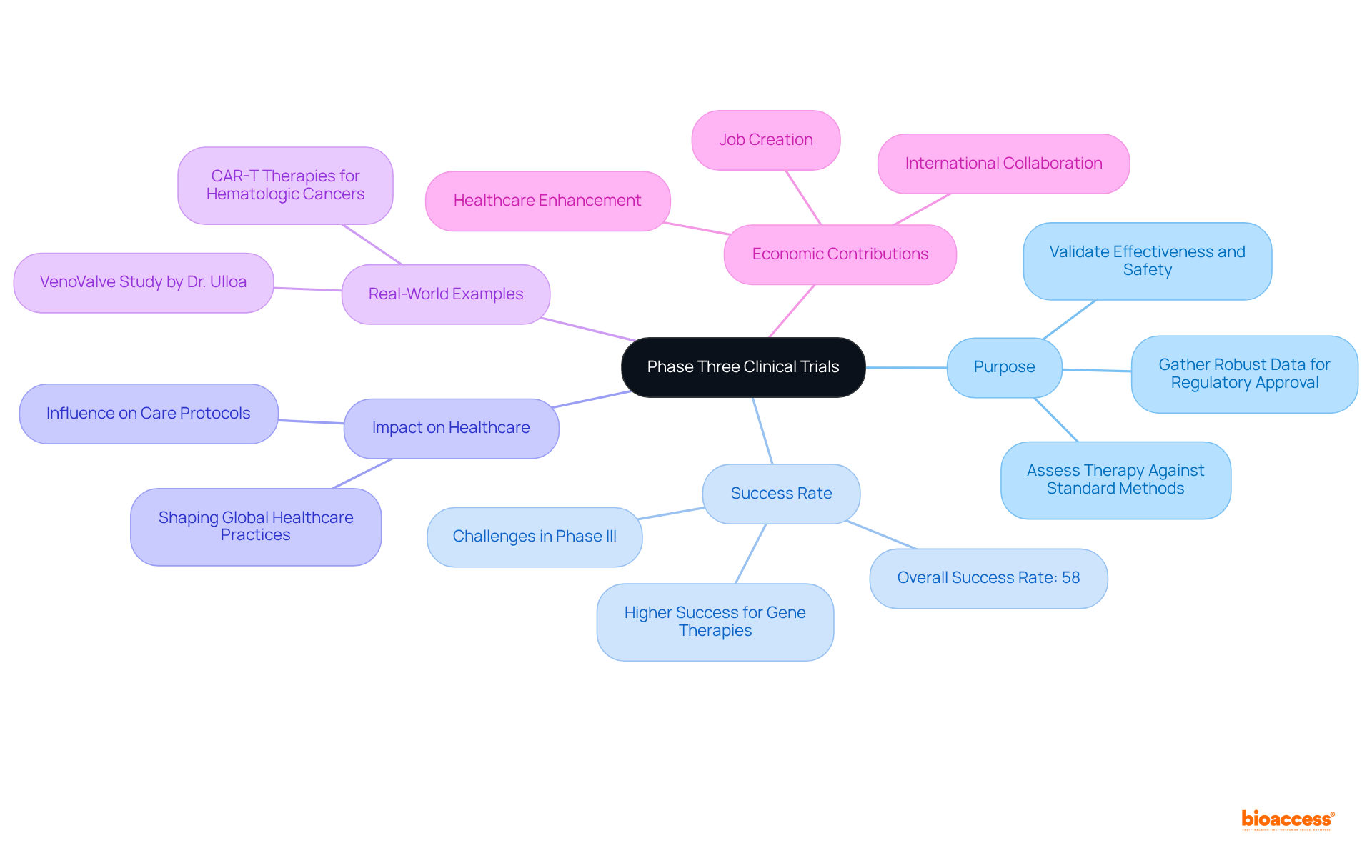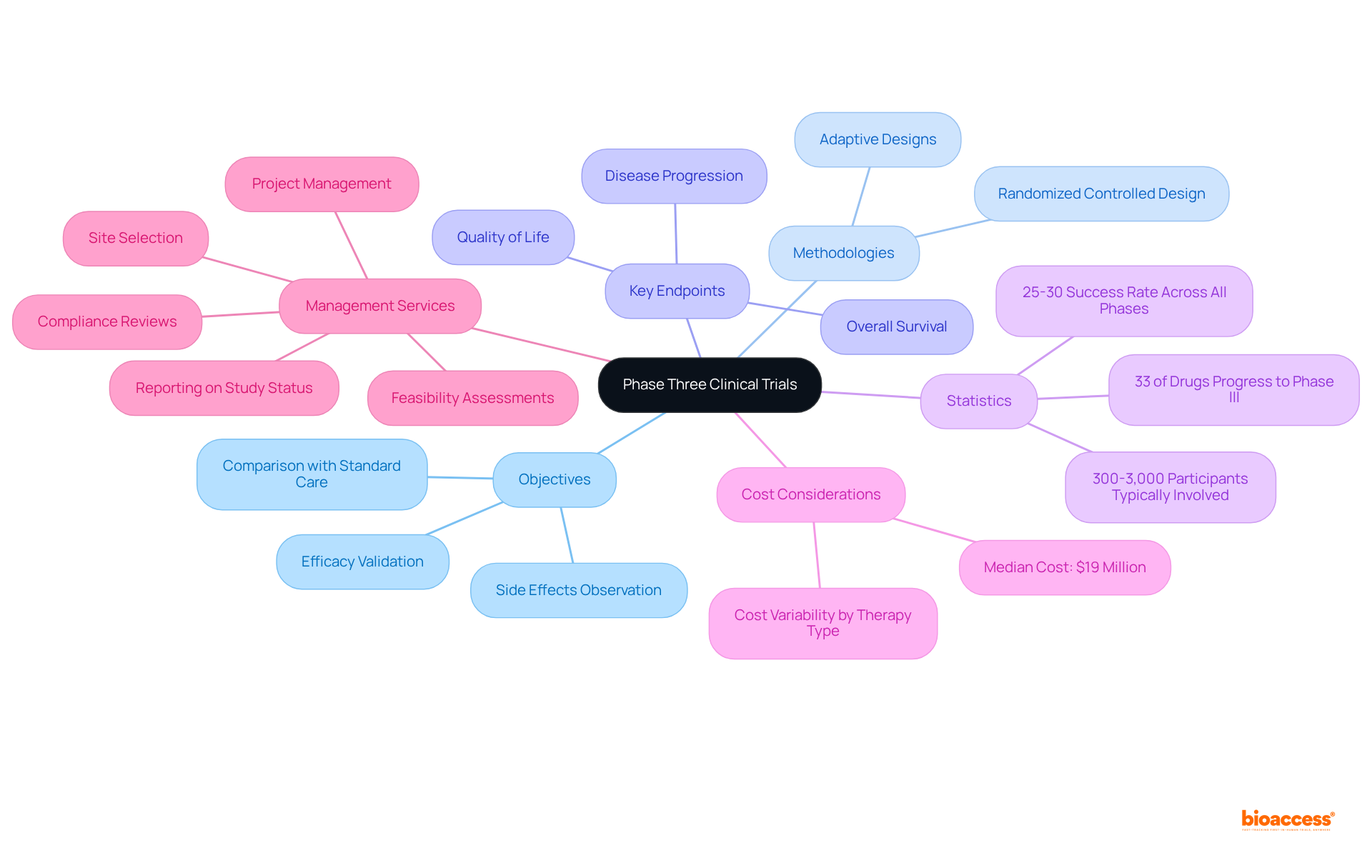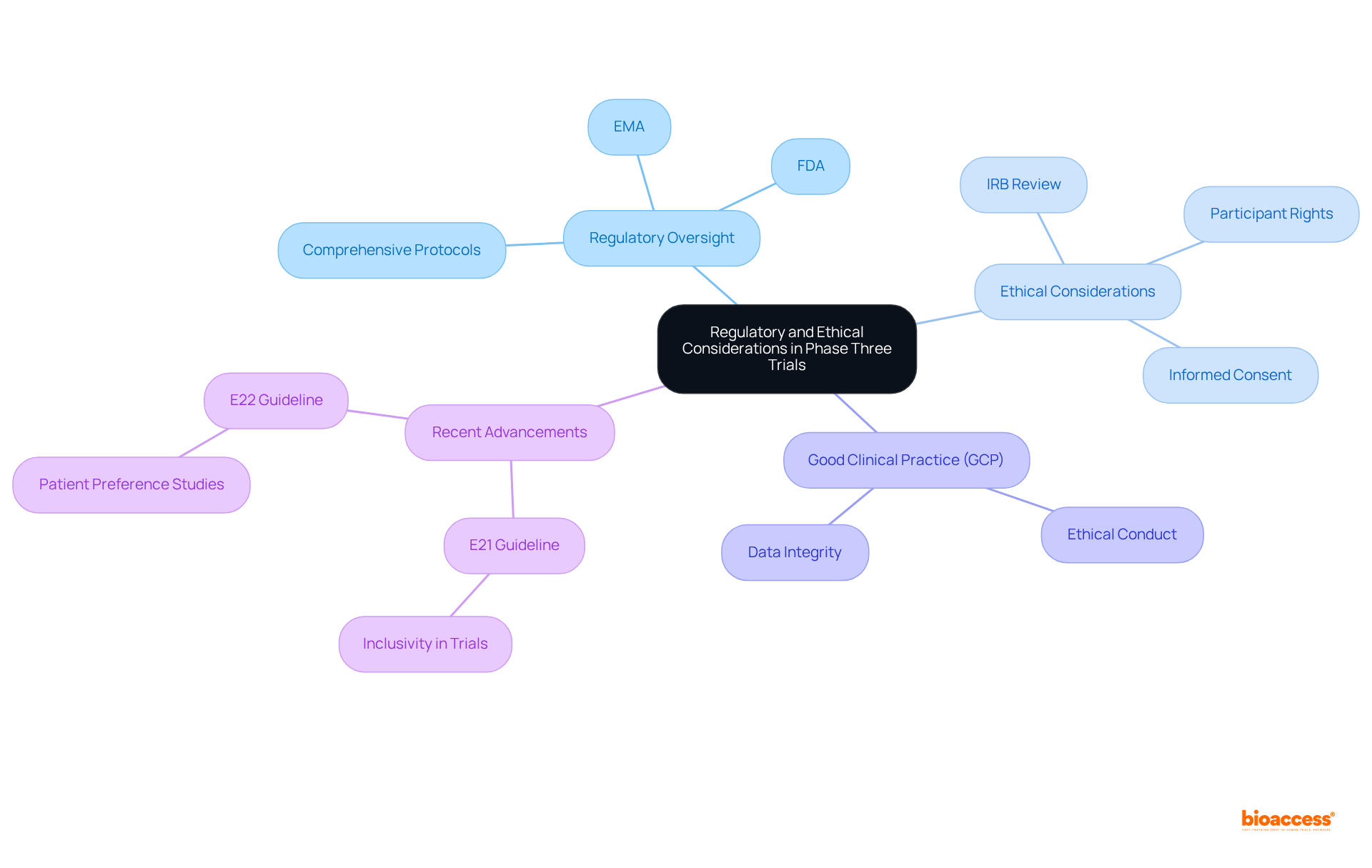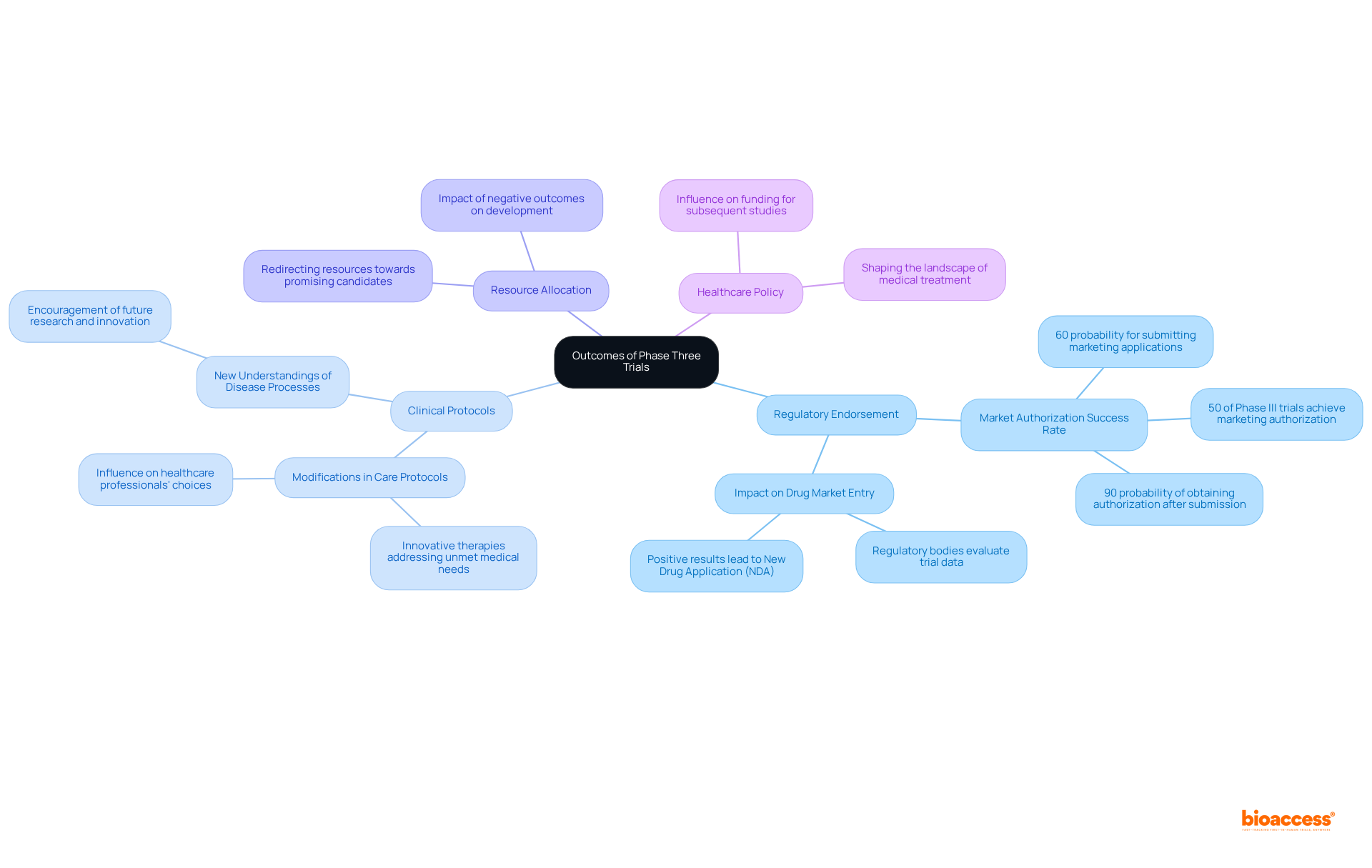


The article underscores the pivotal role of phase three clinical trials in validating the safety and efficacy of new therapies, a process that is critical for regulatory approval and subsequent public availability. It elaborates on the rigorous methodologies employed, emphasizing the importance of ethical oversight. Furthermore, the significant implications of trial outcomes on medical practices and healthcare policies are highlighted, showcasing their influence on patient care and the advancement of treatment options.
Phase three clinical trials signify a critical juncture in the drug development process, characterized by high stakes and the immense potential for transformative healthcare advancements. These trials not only validate the safety and efficacy of new therapies within large populations but also play a pivotal role in shaping treatment protocols that can significantly improve patient outcomes on a global scale.
However, with a success rate hovering around 58%, the path to regulatory approval is fraught with challenges and uncertainties. What strategies can researchers employ to navigate this complex landscape and enhance the likelihood of success in phase three trials?
Phase three clinical trials are pivotal for validating the effectiveness and safety of therapies in larger groups, typically involving hundreds to thousands of participants. These experiments are meticulously designed to provide comprehensive insights into how a remedy operates in real-world scenarios. The primary objective is to gather robust data that supports regulatory approval while assessing the therapy's effectiveness against standard methods. This phase is critical, as it often determines whether a new drug or device will be available to the public, significantly influencing patient care. Furthermore, stage evaluations are essential for identifying rare side effects that may not have been evident in earlier phases, ensuring a thorough assessment of the intervention's risk-benefit profile.
As of May 2023, the success rate for phase three clinical trials is approximately 58%, underscoring the challenges encountered in this vital phase of drug development. Notably, leaders in clinical research emphasize that the outcomes of phase three clinical trials can shape care protocols and influence healthcare practices globally, highlighting their importance in the regulatory approval process. Real-world examples, such as the successful endorsement of CAR-T therapies for hematologic cancers, illustrate how a phase three clinical trial can lead to groundbreaking advancements in treatment options, ultimately improving patient outcomes.
Moreover, the contributions of Principal Investigator Dr. Jorge Hernando Ulloa, who presented one-year data from the VenoValve study at the Charing Cross International Symposium, showcase the significant progress in vascular medicine that can arise from these studies. Additionally, the services provided by bioaccess, including feasibility studies, site selection, and compliance reviews, are crucial for ensuring the success of these experiments. The impact of medtech clinical studies on local economies, including job creation and healthcare enhancement, cannot be overlooked, as they promote international collaboration and stimulate economic growth. Furthermore, the Early Feasibility Study on HYDRAFIL™ for treating chronic low back pain in Colombia highlights the innovative strategies being explored in the field.

Phase three clinical trials are crucial for validating the efficacy of therapies, observing side effects, and evaluating new interventions against standard care. These studies predominantly employ randomized controlled designs, where participants are randomly assigned to receive either the experimental treatment or a placebo. This method minimizes bias and enhances the reliability of results. Recent methodological advancements include adaptive designs, which facilitate modifications based on interim results, thereby improving study efficiency.
Key endpoints such as overall survival, disease progression, and quality of life are meticulously selected to ensure that outcomes resonate with both regulatory authorities and patients. Statistics reveal that approximately 33% of experimental medications that successfully navigate Stages I and II advance to the phase three clinical trial, with only 25-30% of drugs clearing all three stages, underscoring the critical nature of the phase three clinical trial in the drug development process.
Phase three clinical trials typically involve 300-3,000 individuals with specific illnesses and frequently compare new therapies with the most effective standard care to determine which is more efficient for particular cancer types. Instances of randomized controlled designs in phase three clinical trials are notably evident in oncology research, where treatments are assessed against established therapies to ascertain their relative effectiveness and safety.
Furthermore, the median cost of Stage III pivotal studies leading to drug approvals was $19 million, highlighting the financial considerations inherent to this stage. At bioaccess, we provide comprehensive clinical study management services, encompassing:
This ensures that each study is conducted with the utmost regulatory excellence and innovation.

Phase three clinical trials are subject to stringent regulatory oversight, ensuring participant safety and data integrity. Regulatory bodies, including the FDA and EMA, mandate comprehensive protocols that detail the study's design, objectives, and methodologies prior to granting approval.
Ethical considerations are paramount, beginning with the necessity of obtaining informed consent from participants, ensuring they fully understand the associated risks and benefits. Furthermore, Institutional Review Boards (IRBs) or Ethics Committees are tasked with reviewing and approving research protocols to protect participants' rights and welfare.
Adherence to Good Clinical Practice (GCP) guidelines is essential, as it ensures that studies are conducted ethically, yielding credible and reliable data. Notably, a significant percentage of studies in phase three clinical trials require ethical review, reflecting the industry's commitment to maintaining high ethical standards.
Recent advancements in ethical guidelines underscore the continuous evolution of these standards, with industry leaders advocating for enhanced inclusivity and transparency in research processes. For instance, the E21 Guideline aims to improve the representation of pregnant and breastfeeding individuals in clinical studies, ensuring that diverse populations are adequately considered.
Case studies, such as those examining adverse events related to COVID-19 vaccines, underscore the importance of monitoring safety and efficacy throughout the research process, emphasizing the ethical obligation to report results comprehensively.
At bioaccess, our extensive clinical study management services encompass feasibility studies, site selection, compliance reviews, setup, import permits, project management, and reporting, ensuring that all regulatory and ethical standards are effectively met. With specialists like Katherine Ruiz leading our regulatory affairs team, we are well-equipped to navigate the complexities of clinical studies in Colombia.

The results of Stage 3 studies carry significant consequences for medical practice. Favorable outcomes can lead to regulatory endorsement, allowing therapies to enter the market and become essential to standard care protocols. In fact, approximately 50% of phase three clinical trials successfully attain marketing authorization, underscoring their critical role in drug development. Conversely, negative outcomes may halt a procedure's progression, redirecting resources toward more promising candidates.
Furthermore, results from these studies frequently inform clinical protocols and optimal methods, impacting healthcare professionals' care choices. Successful Stage 3 studies have historically resulted in substantial modifications in care protocols, as observed in the approval of innovative therapies that meet unaddressed medical requirements. Additionally, these studies can uncover new understandings of disease processes or therapeutic impacts, encouraging future research and innovation.
The implications of the phase three clinical trial results extend beyond immediate clinical applications, as they influence healthcare policies and funding for subsequent studies, thereby shaping the landscape of medical treatment and patient care.

Phase three clinical trials are a cornerstone in the drug development process, playing a crucial role in validating the safety and efficacy of new therapies. These trials provide essential data for regulatory approval and influence healthcare practices and patient care on a global scale. Understanding their significance is vital for stakeholders involved in clinical research, as the outcomes can determine the availability of innovative treatments that address unmet medical needs.
This article highlights various aspects of phase three trials, including their objectives, methodologies, and the importance of adhering to regulatory and ethical standards. Key points such as high costs, the rigorous design of randomized controlled trials, and the necessity for comprehensive safety monitoring underscore the complexities inherent in this phase. Moreover, the impact of successful trials on healthcare protocols and policies further emphasizes their importance in shaping the future of medical treatment.
Ultimately, mastering the phase three clinical trial process is essential for advancing medical science and improving patient outcomes. Stakeholders are encouraged to prioritize ethical practices and robust study designs to enhance the likelihood of success. By fostering collaboration and innovation within this framework, the potential for groundbreaking therapies to transform healthcare remains within reach, reinforcing the critical role of phase three clinical trials in the ongoing quest for medical advancement.
What are phase three clinical trials?
Phase three clinical trials are crucial studies designed to validate the effectiveness and safety of therapies in larger groups, typically involving hundreds to thousands of participants.
What is the primary purpose of phase three clinical trials?
The primary purpose is to gather robust data that supports regulatory approval while assessing the therapy's effectiveness against standard methods, ultimately determining whether a new drug or device will be available to the public.
Why are phase three clinical trials critical?
They are critical because they can identify rare side effects not evident in earlier phases and provide a thorough assessment of the intervention's risk-benefit profile, significantly influencing patient care.
What is the success rate of phase three clinical trials as of May 2023?
The success rate for phase three clinical trials is approximately 58%.
How do phase three clinical trials impact healthcare practices?
The outcomes of phase three clinical trials can shape care protocols and influence healthcare practices globally, highlighting their importance in the regulatory approval process.
Can you provide an example of a successful phase three clinical trial?
A notable example is the successful endorsement of CAR-T therapies for hematologic cancers, which illustrates how a phase three clinical trial can lead to significant advancements in treatment options.
Who is Dr. Jorge Hernando Ulloa, and what is his contribution to clinical trials?
Dr. Jorge Hernando Ulloa is a Principal Investigator who presented one-year data from the VenoValve study, showcasing significant progress in vascular medicine arising from these studies.
What services does bioaccess provide for clinical trials?
Bioaccess provides services such as feasibility studies, site selection, and compliance reviews, which are crucial for ensuring the success of clinical trials.
What is the economic impact of medtech clinical studies?
Medtech clinical studies can positively impact local economies by creating jobs, enhancing healthcare, promoting international collaboration, and stimulating economic growth.
What innovative strategies are being explored in clinical trials?
The Early Feasibility Study on HYDRAFIL™ for treating chronic low back pain in Colombia highlights innovative strategies being explored in the field.